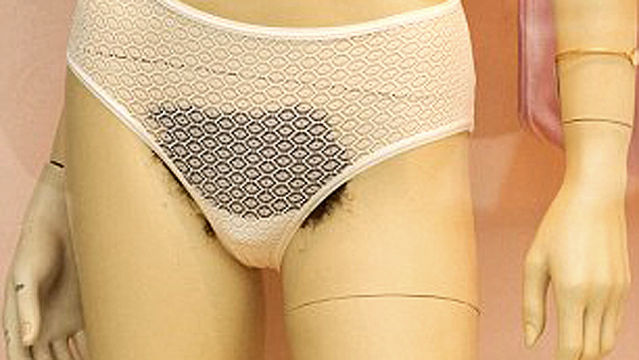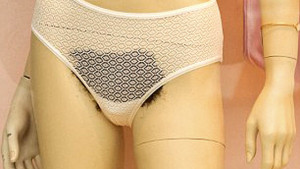HANNAH BEER comments on how feminism is storming the fashion industry.
At the Golden Globes this year, Emma Thompson presented an award holding her Christian Louboutins in her hands, joking that the trademark red soles were so coloured ‘from her blood’. A couple of weeks later, Karl Lagerfeld sent his models down the runway wearing couture gowns with trainers, a la Lily Allen. These two episodes come after 18 months of catwalks and high streets being trodden on by hidden heels, low heels or no heels at all. Karl Lagerfeld is a man who has no problem at all in body-shaming women – he once said that Adele, despite her Grammy/Oscar/everything-winning voice, was ‘a little too fat’. He therefore is probably not designing luxury trainers with female empowerment in mind, but that’s not to say the rest of the world hasn’t been motivated to wear them by exactly that.
Girls do not like wearing high heels. They are uncomfortable, painful and, frankly, we will do anything to avoid them – whole trends have been set in handbag sizes so that we can carry around flats to change into after everyone has seen how nice our killer (so called for a reason) heels make our legs look. Up until recently however, there was an attitude that heels were just a normal part of life. The problem was that high heels were designed by men to make women look more attractive. This idea was emphasised by Hollywood femmes fatales and Playboy magazine. They were championed by male designers like Manolo Blahnik and, of course, Christian Louboutin, and it’s since been ingrained in our social system that a women looks her most attractive with a pair of stilettos on.
Thankfully, this attitude is beginning to change. The recent ‘fourth wave’ of feminism, spear headed by the likes of Caitlin Moran and Lena Dunham, has led to a backlash against the male ideal of what a women should look like, which has meant a big anti-heels movements on the streets which is starting to shift to the catwalk. King Karl may not have wanted to cash in on such a trend, but he did, and the stem of that trend is undoubtedly feminist.
This infiltration of feminism into fashion doesn’t stop with footwear. It is, so to speak, moving from the ground up. American Apparel, the clothing company that has been criticised for the sexual content of their adverts, have given their female window mannequins of a Brooklyn store pubic hair, causing uproar all over the world. Their website features models with (as Gwyneth Paltrow calls it) a ‘70s vibe’, which has also been received with outrage. American Apparel have defended their decision by saying that their aim is to show that ‘women are not subordinate creatures to just be entered … we are our own beings in control of our sexuality’. Whilst many people would think this is stating the obvious, and have questioned why pubic hair plays any part in this debate, the sad fact of the matter is that the fashion for Brazilians or Hollywoods all stem from the porn industry. This industry undeniably cultivates a male-dominated environment where women are indeed seen as subordinate creatures, there to ‘just be entered’. In refusing to comply with what has become the norm for a woman’s body, American Apparel has forced the world not only to reconsider the hairless normality, but also to question why it has become so.
American Apparel, who have long been unafraid to show the female body in the same light a man’s (the nipples on the Brooklyn mannequins, for example, are now on show as well), are at the forefront of a rebranding of female beauty within the fashion industry. From the designer Rick Owens using a group of ‘plus size’, non-model women to showcase his designs for this season in Paris in September, to Anna Wintour putting Lena Dunham on the cover of February US Vogue, the fashion industry is finally playing ball with feminism. Maybe we can’t read too much into it, and maybe it’s just fashionable at the moment. But even if that’s the case, if one of the biggest and most influential industries in the world is working with and propelling feminism, that’s got to be good news.






